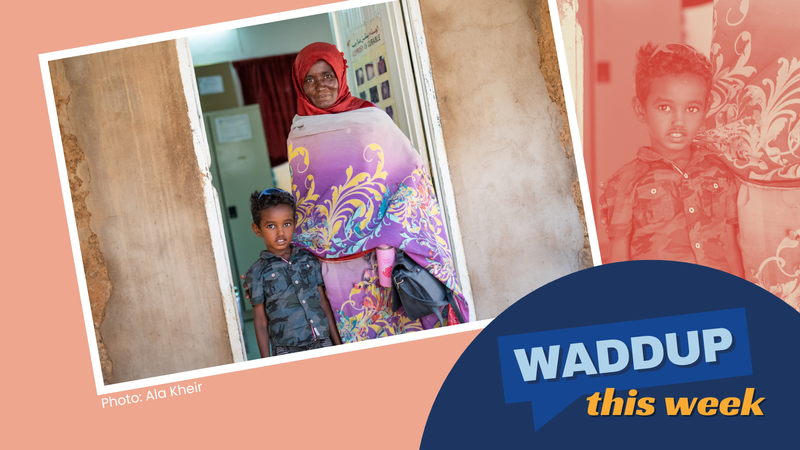The pain of separation
Peter Waddup, CEO - The Leprosy Mission Great Britain
This week marked five years since the UK was put into lockdown. Overnight every person in the country was forced to face the pain of separation. It was so hard to not spend time with friends, family members, colleagues and the community around us. Seeing my elderly mum became challenging. And my heart broke for those unable to visit their dying loved ones in hospital. It was an unprecedented moment in history, and one filled with sorrow for so many of us.
At The Leprosy Mission we are feeling the pain of separation from the people we served in Sudan. Like me, you may have been distressed to see Sudan's forgotten war make a rare appearance in the news this week. The bloody battle for Khartoum saw the world's worst humanitarian crisis finally garner headlines.
Sudan's civil war has claimed more than 150,000 lives. Around 12 million people have been forced to flee their homes. The fighting has caused the worst famine in decades. Thirty million Sudanese, more than half the population, face acute hunger. It is an utterly wretched situation.
Yet heartbreakingly, the conflict has not attracted the eyes of the world. Compared with Ukraine and Gaza, it has been overlooked by the media. I cannot even hazard a guess to the reason. Particularly as Britain, along with Egypt, once had joint rule over Sudan. Yet with UK and US overseas aid budgets cut to the core, support for victims is waning. Tragically, every metric points to the crisis worsening too.
The Leprosy Mission's Aburoff Clinic closed in 2023 following intense fighting on the streets of Khartoum. The desperately-needed facility was Sudan's only specialist leprosy clinic. It provided the cure for leprosy, eye care and medical treatment free of charge.
The selfless and tenacious duo of medics running the clinic were forced to flee for their lives. One remains in Khartoum but does not know if the clinic is still standing. Due to the amount of shelling in that part of the city, he hasn't been able to even walk by since. It is just so tragic to think what might have become of patients like Samah and her dear son Ameen (pictured).
My colleagues in Mozambique know only too well the pain of being separated from those they serve. An insurgency that began in Cabo Delgado in 2017 has increasingly seen areas of the province become inaccessible. This time last year a decision was made to permanently leave our base in Pemba. This followed a fresh wave of violence in the southern districts of Cabo Delgado.
Life never runs smoothly for the brave and resilient team in Mozambique. Two weeks ago, Cyclone Jude wreaked havoc on Nampula, the team’s new base. A bridge on the main route connecting Nampula with Cabo Delgado was destroyed. Undeterred, they have set off on an extremely lengthy and circuitous detour. They are so determined to reach Cabo Delgado and the communities we serve.
The Covid lockdowns can feel like yesterday and, at other times, a lifetime ago. Thankfully, daily life has returned to normal for most of us. The gruelling months, and in some cases years, of separation are over. Yet in our work, separation tragically remains a common theme. It may be through war, political unrest, climate-exacerbated disasters or failed communications. It is something we are increasingly up against. It is my job to try to see the bigger picture so that we don't lose heart. Nothing is impossible and we can be reunited. Even seemingly hopeless situations like Sudan can be resolved, if the global will is there.
